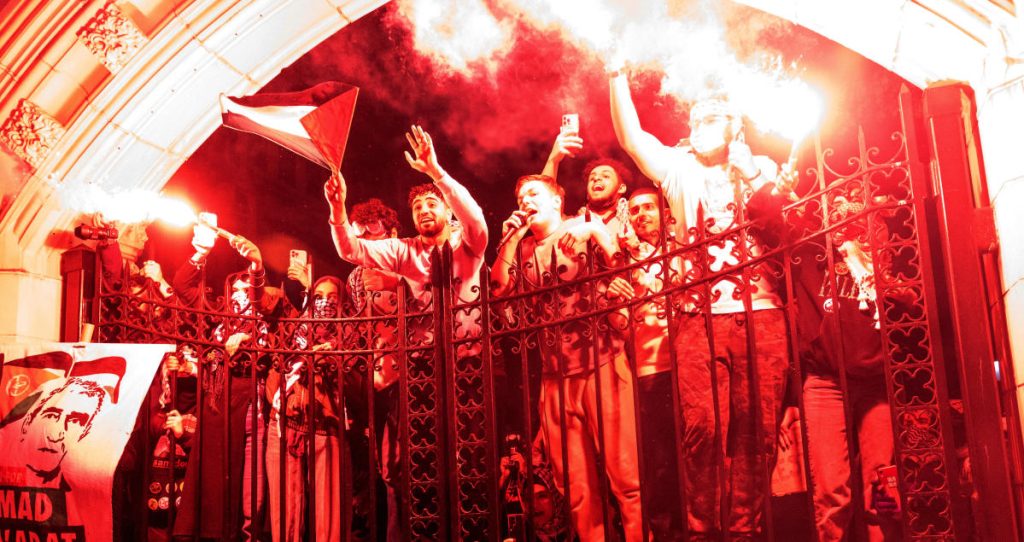A Columbia faculty member speaking anonymously revealed that the Faculty and Staff for Justice in Palestine protest aimed to express frustration with the administration’s handling of recent events. The faculty believes that the administration has disregarded normal governance procedures and due process, leading to outrage. While the focus of the protest is on the administration’s response rather than the Israel-Palestine conflict itself, faculty members are critical of the administration’s actions and lack of sensitivity to the situation. One of the chants being repeated by faculty is “Cops off our campus” in response to an increased presence of the New York Police Department, which has raised concerns about the autonomy of the university’s public safety.
Columbia President Nemat “Minouche” Shafik defended the decision to bring more police officers to campus, citing the need to maintain order. However, faculty members argue that this move represents a violation of the university’s autonomy, as they believe that the administration should not rely on the NYPD as a private police force. The faculty member expressed concern that the administration did not consult with the faculty senate before bringing in additional law enforcement, highlighting a breakdown in communication and decision-making processes within the university. This lack of coordination has added to the frustration among faculty members, regardless of their opinions on the Israel-Palestine conflict.
In response to allegations of violating the due process rights of students and professors, Columbia’s senate voted for an investigation into the school’s leadership. The faculty member emphasized that the university’s failure to consult with the faculty senate regarding the NYPD presence is indicative of broader issues in the university’s governance structure. He described the situation as “insane” and highlighted the need for improved mechanisms to ensure transparency and accountability within the university. The breakdown in communication and decision-making processes has raised concerns about the administration’s ability to address sensitive issues such as the Israel-Palestine conflict in a fair and respectful manner.
The faculty member’s comments reflect a growing sense of frustration and disillusionment with the administration’s handling of recent events at Columbia University. The lack of consultation with faculty members and the decision to bring in additional police officers have raised concerns about the administration’s respect for the university’s autonomy and governance processes. The faculty’s focus on the administration’s reaction and tone deafness rather than the Israel-Palestine conflict itself underscores the broader issues of governance and accountability within the university. The ongoing protests and calls for investigation highlight the need for greater transparency and communication to address the concerns of faculty, staff, and students at Columbia University.


